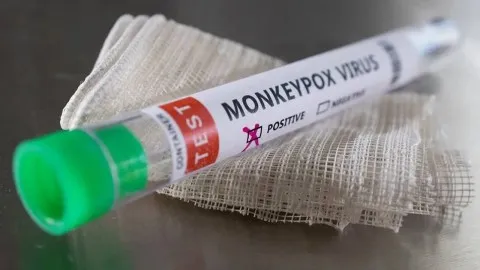Global Health Emergency Response
The World Health Organization (WHO) recently declared a global health emergency due to the Mpox outbreak, previously known as Monkeypox. This decision marks a significant moment in global public health, reflecting the severity and international concern surrounding the virus’s spread. As countries worldwide grapple with the challenges posed by Mpox, the WHO’s declaration underscores the need for urgent, coordinated action to contain the outbreak and mitigate its impact on global health.
Table of Contents
The Rise of Mpox: A Growing Concern
Mpox, caused by the Monkeypox virus, is a zoonotic disease, meaning it can be transmitted from animals to humans. Historically, Mpox has been confined to Central and West Africa, with occasional cases reported in other regions. However, the recent surge in cases outside these endemic areas has alarmed health authorities and prompted the WHO to escalate the situation to a global health emergency.
The virus primarily spreads through close contact with infected animals or humans. It can be transmitted via respiratory droplets, bodily fluids, or direct contact with lesions on the skin. The symptoms of Mpox are similar to those of smallpox but are generally milder. They include fever, headache, muscle aches, back pain, swollen lymph nodes, chills, and a rash that often begins on the face and spreads to other parts of the body.
Factors Contributing to the Outbreak
Several factors have contributed to the rapid spread of Mpox in recent months. Increased global travel, particularly to and from regions where the virus is endemic, has played a significant role in the virus’s transmission. Additionally, the virus may have evolved, becoming more easily transmissible among humans. Environmental changes, such as deforestation and urbanization, have also increased human contact with wildlife, heightening the risk of zoonotic diseases like Mpox.
Another critical factor is the lack of immunity in populations outside of Africa. Unlike smallpox, which was eradicated in 1980, Mpox has not been the focus of widespread vaccination campaigns. As a result, most people lack immunity to the virus, making them vulnerable to infection.
The WHO’s Response: A Call to Action
The WHO’s declaration of a global health emergency is a call to action for governments, health organizations, and the global community. It signals the need for a coordinated international response to prevent the further spread of the virus. The WHO’s recommendations include enhancing surveillance, improving diagnostic capacity, and ensuring the availability of vaccines and antiviral treatments.
Governments are urged to implement measures to reduce the risk of transmission, such as educating the public about the symptoms of Mpox and promoting behaviors that reduce the risk of infection. Health authorities are also encouraged to strengthen their preparedness and response plans, including contact tracing, isolation of cases, and vaccination of at-risk populations.
The WHO’s declaration also emphasizes the importance of research and data sharing. Understanding the virus’s transmission dynamics, potential mutations, and effectiveness of vaccines and treatments is crucial for developing effective strategies to combat the outbreak. The WHO is working with partners worldwide to gather and disseminate information to inform public health decisions.
The Role of Vaccines and Treatments
Vaccination is a critical tool in the fight against Mpox. The WHO has recommended the use of the smallpox vaccine, which provides some protection against Mpox, as well as newer vaccines specifically developed for Mpox. Vaccination campaigns are particularly important for frontline health workers, people living in endemic regions, and those who have been exposed to the virus.
In addition to vaccines, antiviral treatments can help reduce the severity of symptoms and prevent complications. The WHO is advocating for the availability and equitable distribution of these treatments, particularly in low- and middle-income countries where access to healthcare resources may be limited.
International Cooperation: A Global Effort
The global nature of the Mpox outbreak requires a collective effort. Countries must work together to share information, resources, and expertise to combat the virus. International organizations, governments, and non-governmental organizations (NGOs) all play a crucial role in coordinating and supporting the global response.
Financial and technical assistance is essential for countries with limited healthcare infrastructure. The WHO and other international organizations are working to provide these resources, but sustained global support will be necessary to ensure an effective response.
The role of public health education cannot be overstated. Misinformation and fear can hinder efforts to control the outbreak. Accurate, timely information is essential to help people protect themselves and others. Public health campaigns must be culturally sensitive and tailored to the needs of different communities.
The Path Forward: Preparedness and Prevention
While the Mpox outbreak has highlighted the vulnerabilities in global health systems, it also offers an opportunity to strengthen preparedness and prevention measures. The WHO’s declaration is a reminder of the importance of investing in public health infrastructure, research, and education to prevent future outbreaks.
Countries must prioritize the development of robust surveillance systems that can detect and respond to emerging threats. This includes improving laboratory capacity, training healthcare workers, and ensuring the availability of medical supplies.
Global health security also depends on addressing the root causes of zoonotic diseases. Protecting natural ecosystems, regulating wildlife trade, and promoting sustainable development are all essential for reducing the risk of future outbreaks.
Conclusion: A Unified Global Response
The WHO’s declaration of a global health emergency over the Mpox outbreak is a critical moment in global public health. It calls for a unified, coordinated response to contain the virus and prevent further spread. While the challenges are significant, the international community has the tools and knowledge to overcome them. By working together, countries can protect public health, save lives, and prevent future outbreaks of Mpox and other emerging infectious diseases.








